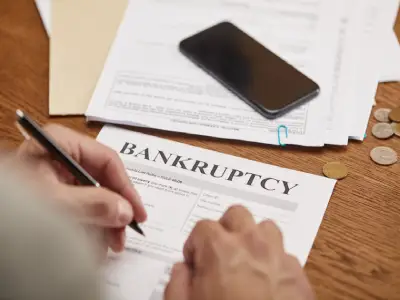Filing for Chapter 7 bankruptcy can be a complex and intimidating process. A skilled bankruptcy attorney can help you navigate the process and protect your assets.
Georgia residents must pass the Means Test to qualify for Chapter 7. This evaluates your income and expenses to determine if you have enough disposable income to pay some or all of your debt.
What Can Be Discharged?
When you file Chapter 7 bankruptcy, a trustee oversees your case. This person will review your paperwork, examine your spending habits and look into any possible fraud. Creditors and lenders might also show up to question you about recent credit card charges, mortgage payments or other debts.
The trustee can sell any property you can’t exempt from your bankruptcy—for example, cars, homes, furniture, jewelry and bank accounts—and use the proceeds to pay unsecured creditors. This might take several months.
Certain types of debt aren’t dischargeable under Chapter 7. These include child support, alimony, court-ordered damage awards and some taxes. However, consistent responsible financial behavior following a discharge can improve your creditworthiness over time.
What Can Be Exempted?
Many people who consider bankruptcy fear that they will lose their homes, cars and retirement accounts. While these are legitimate concerns, Georgia law provides for exemptions that protect property from liquidation in a Chapter 7 bankruptcy.
For example, a couple can exempt up to $43,000 of the equity in their home. They can also use the “wildcard” motor vehicle exemption or state-specific tools of the trade exemption.
Other property that can be protected includes alimony or child support necessary to the debtor’s support, unemployment compensation, social security benefits, public assistance, crime victim’s compensation and money from professionally prescribed health aids. In addition, unmatured life insurance proceeds that are deemed to be reasonably necessary for the debtor’s support can be exempted.
A qualified attorney at Bournakis & Mitchell can help you determine which exemptions you are eligible to claim.
What Can Be Sold?
The bankruptcy trustee will sell any assets that are not exempt to pay your creditors. Georgia offers a homestead exemption that protects up to $21,500 in equity for single filers, and the amount doubles when married debtors file. The state also allows debtors to exempt implements, books and tools of the trade or occupation.
Mortgage companies will not typically foreclose on a home in Chapter 7 cases as long as the debtor keeps their payments current. However, a debtor may be required to give up the property if it’s secured by a lien.
If you want to keep your property, you can file for Chapter 13 bankruptcy instead. This option lets you create a plan to repay your creditors over three to five years.
What Can Be Foreclosed On?
Many people file Chapter 7 bankruptcy because they are in foreclosure on their home. Tightening their belts and working extra hours can often not be enough to pay creditors, especially when the threat of losing the family home becomes reality.
During a Georgia Chapter 7 bankruptcy, a trustee is assigned to the case and will examine your property for any assets that could be sold in order to pay creditors. However, mortgage companies are usually not allowed to foreclose on homes when a debtor files a Chapter 7.
Mortgage companies can work with homeowners on loan modification programs outside of the bankruptcy process in order to help them catch up on mortgage arrears and prevent foreclosure. Contact a Georgia bankruptcy attorney today to find out how you can save your home from foreclosure.
How Much Will It Cost?
In a Chapter 7 bankruptcy, the trustee looks at your assets and liabilities. If the trustee finds nonexempt property that can be sold, they will sell it and use the proceeds to pay your creditors.
The court charges a $338 filing fee for Chapter 7. However, if your household income is less than 150% of the federal poverty guidelines, you may qualify to have this fee waived.
You also need to complete credit counseling and debtor education courses. Your attorney can help you find approved providers. Secured debts (like mortgages and car loans) can be kept if you “reaffirm” the debt. You can also surrender secured property, but if you do so, the creditor is allowed to foreclose or repossess it. This is why you need the automatic stay that goes into place when you file your case to prevent creditors from taking any action against you.














